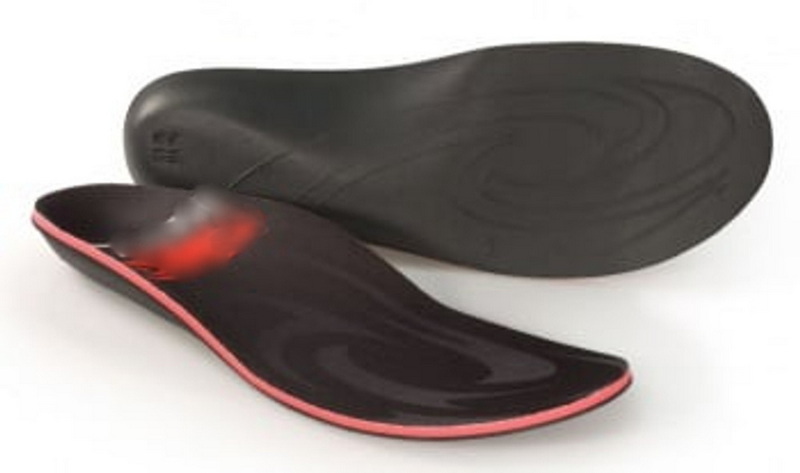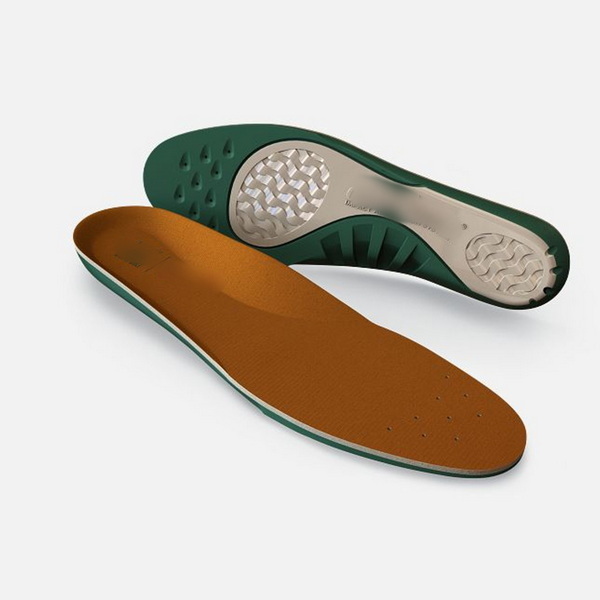Views: 222 Author: Edvo Publish Time: 2025-11-20 Origin: Site











Content Menu
● Introduction to Custom Shoe Orthotics
>> The Impact of Proper Foot Support
● Understanding Medicare Coverage for Orthotics
>> Medicare Part B and Durable Medical Equipment
>> Custom vs. Off-the-Shelf Orthotics
● Eligibility Criteria for Medicare Orthotics
>> What Medical Conditions Qualify?
>> The Role of Certified Medical Professionals
● The Application and Claims Process
>> Step-by-Step Application Guide
● Addressing Myths and Misconceptions
>> Myth #1: All Seniors Get Free Orthotics
>> Myth #2: Any Supplier is Acceptable
>> Myth #3: Full Coverage with No Copay
● The Importance of Custom Orthotics for Foot Health
>> Preventative Foot Care for Seniors
>> Enhancing Mobility and Quality of Life
● How to Appeal a Medicare Denial
● Alternatives for Purchasing Custom Shoe Orthotics
● Integrating Orthotics with Daily Footwear
>> Choosing the Right Shoe for Your Orthotic
>> Caring for Your Custom Orthotics
● The Manufacturer's Role in Quality Orthotics
● FAQ
>> 1. What types of orthotics does Medicare cover?
>> 2. Who must prescribe the orthotics for Medicare to pay?
>> 3. Can I purchase custom orthotics from any supplier?
>> 4. What alternatives exist if I don't qualify for Medicare coverage?
>> 5. Does Medicare pay for over-the-counter shoe inserts or generic insoles?
Custom orthotics shoe represent an essential component in modern healthcare for those seeking optimal comfort, protection, and mobility. Whether you are coping with diabetes, chronic foot pain, or structural foot issues, orthotics can make a remarkable difference in quality of life. But for many seniors and those with long-term health conditions, cost remains a concern. One of the most common questions is: Will Medicare pay for custom shoe orthotics?

Custom shoe orthotics are precision-tailored inserts produced to match the unique shape and needs of a person's foot. They are made using advanced scans, impressions, or molds under the supervision of healthcare professionals. Unlike generic insoles that offer limited support, custom orthotics are crafted to address specific medical conditions, enhance mobility, and prevent injury.
Foot health is often overlooked, yet it is vital for general wellbeing. Individuals facing health challenges, such as arthritis or diabetes, can experience significant relief and improved function with correctly designed orthotics. From reducing plantar fasciitis pain to safeguarding diabetic feet from ulcers, custom orthotics provide unique advantages, including increased comfort, proper posture, and reduced risk of secondary complications.
Medicare is the primary insurance program for U.S. seniors and people with disabilities. It covers a wide range of medical equipment, including some orthotic devices. However, coverage is governed by strict criteria and often misunderstood.
Medicare Part B deals largely with outpatient care and durable medical equipment (DME). While certain DME, such as wheelchairs and walkers, are routinely covered, custom orthotics fall into a specialized category. These devices are only covered when prescribed for qualifying medical needs, most commonly diabetes-related conditions.
Medicare covers custom shoe orthotics for patients who:
- Have diabetes with qualifying ulcerative or structural foot conditions.
- Have documentation from a Medicare-recognized physician or podiatrist.
- Are receiving treatment from a Medicare-contracted supplier.
Medicare specifically excludes coverage for orthotics meant for routine foot discomfort or sports injuries, unless the issue is connected to a severe medical condition.
“Custom-made” refers to a device built specifically for the individual, using measurements or molds, compared to “off-the-shelf” inserts manufactured in bulk and trimmed to fit. Medicare's coverage is generally for custom-molded shoes and depth-inlay shoes for eligible diabetics and, in some cases, for deeply corrective insoles for severe medical conditions.
Medicare's orthotics coverage is targeted mainly at individuals who suffer from serious foot-related complications, such as:
- Diabetes with foot ulcers, previous amputations, severe neuropathy, or poor circulation.
- Advanced arthritis with substantial impairment.
- Certain post-surgical recoveries prescribed by a specialist.
Routine aches, arch pain, minor bunions, or non-diabetic conditions are usually not covered unless declared medically necessary by a physician.
A key step toward receiving covered orthotics is an assessment and prescription by a Medicare-approved provider, typically a podiatrist. This includes:
- A comprehensive foot exam
- Diagnostic notes
- Rationale for medical necessity
- Prescription detailing device specifics
Obtaining custom shoe orthotics through Medicare is a multi-step process intended to ensure appropriate use and compliance.
1. Initial Consultation: Schedule a visit with your primary care doctor or podiatrist to discuss your foot health and potential need for orthotics.
2. Examination & Diagnosis: Your physician will perform a thorough foot exam, review medical history, and determine medical necessity.
3. Prescription & Documentation: The physician prepares a prescription and supporting documents, including evidence of the qualifying medical condition.
4. Supplier Selection: Choose an approved Medicare supplier specializing in custom orthotics or diabetic footwear.
5. Device Fabrication: The supplier creates the orthotic according to physician instructions, ensuring proper fit and correction.
6. Payment Submission: Supplier submits a claim to Medicare with all necessary forms and documentation.
7. Approval & Payment: Medicare reviews the claim and, if approved, covers 80% of the allowable cost after the deductible is met. Patients are responsible for the remaining 20%, unless covered by a supplemental insurance plan.
Many claims are delayed or rejected due to incomplete documentation, lack of a clear diagnosis, or attempts to use non-approved suppliers. Prepare all paperwork meticulously and verify supplier credentials before proceeding.

Medicare coverage is not universally available. Devices must be prescribed for specific, serious medical conditions. Simple insoles for comfort or arch support are excluded.
Only Medicare-enrolled and accredited suppliers are allowed. Attempting reimbursement for orthotics from non-contracted or online retailers will almost always be denied.
Medicare generally pays 80% of the approved costs. Without a Medigap or secondary insurance plan, the patient will be required to pay the balance.
As people age, structural changes in the feet can result in discomfort, instability, and increased risk of falls. Custom orthotics not only relieve pain but also help prevent the development and progression of more serious conditions such as pressure sores or joint misalignment.
Custom devices support natural gait, reduce fatigue, and make walking easier, enabling seniors to remain physically active and independent. For diabetic patients, they are crucial for avoiding foot ulcers and related complications.
If a claim for coverage is denied, beneficiaries have a formal appeals process:
- Review the “Medicare Summary Notice” for explanation.
- Contact your supplier and physician for clarification.
- File an appeal in writing within 120 days, providing additional evidence if needed.
- Await Medicare review and keep all correspondence for future reference.
Persistence is key; many claims are approved upon resubmission with more complete documentation.
Medicare's strict rules leave many patients seeking alternatives:
- Private or Employer-Sponsored Insurance: Some policies offer broader orthotics coverage; check with insurer for eligibility.
- Supplemental Insurance Plans: Medigap or Medicaid may cover remaining costs or provide additional orthotics support.
- Health Savings Accounts (HSAs/FSAs): Use pre-tax medical savings for orthotics.
- Direct Payment Plans: Some clinics offer senior discounts or payment options for uninsured patients.
To ensure maximum benefit, pair orthotics with shoes designed for insertion. Features to look for include:
- Removable insoles
- Deep toe boxes
- Stable heel counters
- Ample width and volume
Wearing orthotics in poorly fitting or incompatible footwear can diminish their effectiveness.
Proper maintenance extends longevity and keeps them functioning optimally:
- Clean regularly with a damp cloth.
- Air dry away from direct sunlight or heat sources.
- Inspect for wear every six months.
- Visit your podiatrist for annual evaluations.
Custom orthotics manufacturers combine medical expertise with advanced production equipment to craft devices that meet every patient's individual needs. Materials used can include memory foam, EVA, rigid plastics, and antimicrobial fabrics for hygiene and comfort. For patients seeking the best in foot health, choosing an experienced supplier and manufacturer is vital.
Custom shoe orthotics are invaluable for those managing chronic health conditions and foot problems. Medicare will only pay for these advanced medical devices under very specific circumstances, primarily for diabetic patients with serious qualifying foot health issues and when prescribed by an approved medical professional. Understanding your eligibility, the application process, and available alternatives empowers you to secure the care and comfort needed for an active lifestyle. As manufacturing technology and medical standards evolve, seniors and patients can look forward to even more sophisticated and effective orthotic solutions. Those not qualifying for Medicare should explore private insurance, savings plans, or manufacturer-offered financing as practical ways to invest in foot health.

Medicare principally covers custom-molded diabetic shoes and up to three pairs of orthotic inserts annually for those meeting strict medical requirements. Most other types are not covered unless proven medically necessary by a physician.
Only prescriptions from Medicare-enrolled physicians, such as podiatrists or relevant specialists, are acceptable for claims submission.
No. You must use a supplier recognized and enrolled by Medicare. Claims from non-approved suppliers or direct online retailers will be denied.
Private health insurance, employer-sponsored plans, Medicaid, health savings accounts, and direct purchase from suppliers offer alternative routes for acquiring necessary orthotics.
No. Medicare excludes routine foot care products, generic insoles, and arch supports intended for comfort or minor pain.